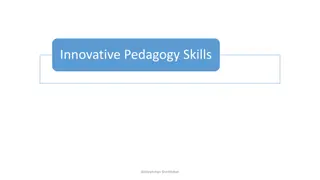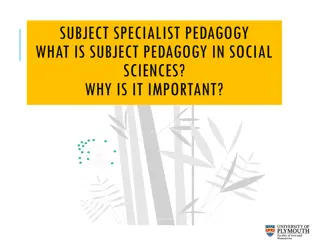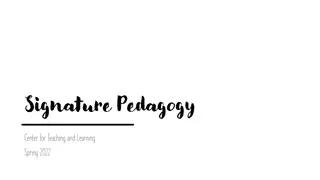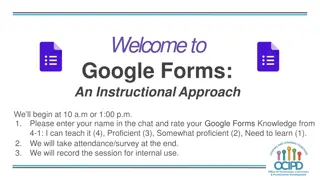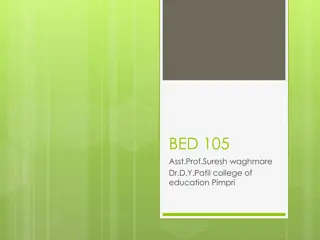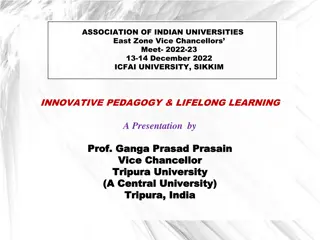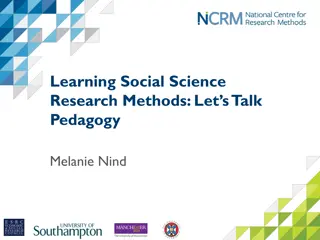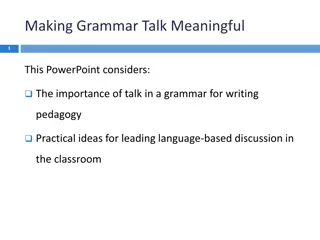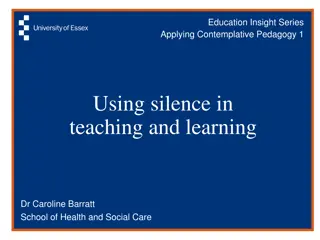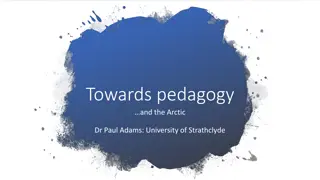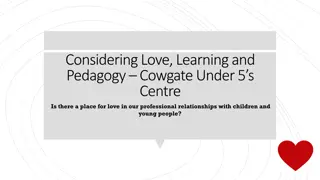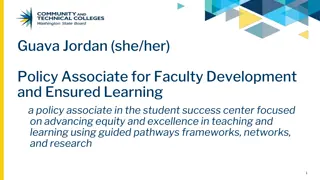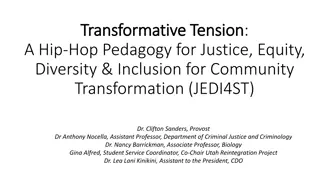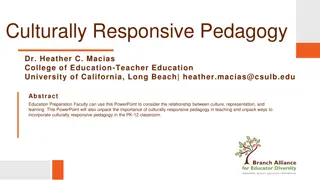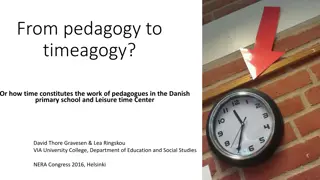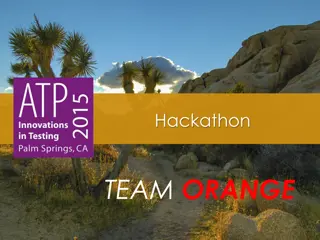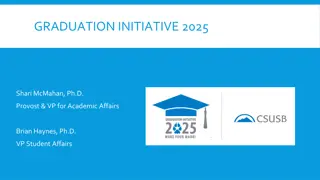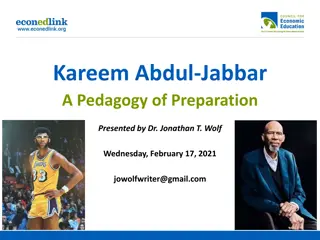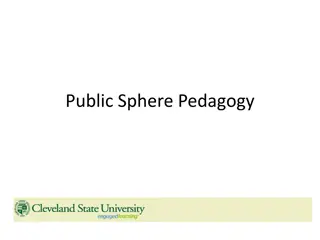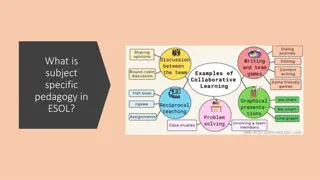Exploring the Evolution of Pedagogy Through History
Delve into the rich history of pedagogy, from its roots in Ancient Greece to its status as an applied science today. Discover the different components, importance of technology, and the significance of innovative pedagogy in lifelong learning. Uncover how pedagogy has evolved and transformed, shaping educational practices over time.
Download Presentation

Please find below an Image/Link to download the presentation.
The content on the website is provided AS IS for your information and personal use only. It may not be sold, licensed, or shared on other websites without obtaining consent from the author. Download presentation by click this link. If you encounter any issues during the download, it is possible that the publisher has removed the file from their server.
E N D
Presentation Transcript
Innovative Pedagogy Innovative Pedagogy & & Lifelong Learning Lifelong Learning
We need technology in every classroom and in every student and teacher s hand, because it is the pen and paper of our time, and it is the lens through which we experience much of our world. - David Warlick
Definition Pedagogy The word "PEDAGOGY" is derived from the Greek words PAIDOS meaning a "boy or child," and AGOGOS meaning a "leader . A PAIDAGOGOS was a slave who accompanied boys to and from school, tutored them after school, and taught them manners. The word "PEDAGOGUE" eventually came to mean "TEACHER," and because it still has an outdated ring to it, people sometimes associate it with stuffy, dull instructors. Pedagogy refers to the education, the profession and science of teaching, for example as a college subject and pedagogic training is what education receives. everyone majoring in
Different Components of Pedagogy the content of what is being taught CURRICULUM for socializing children and affective skills required for successful functioning in society Learning way in which teaching is done TECHNIQUES METHODOLOGY
History of Pedagogy In order to trace the history of pedagogy, it s important to first define the concept of pedagogy itself, whose meaning has undergone numerous iterations over the centuries. The concept has always been associated with the history of the development of thought, instructional institutions, and the advancement of knowledge, on which thinkers educators have always relied. Pedagogy is an art - Right from the beginning, education was assigned the status of art the art of teaching, of leading children to knowledge. This concept reminds us that the profession of an educator first emerged in Ancient Greece. Back then, the role of the educator was performed by slaves, who were given the noble task of walking the master s children to school, taking care of their physical appearance, and accompanying them during their chores and play. The founding father of education is widely considered to be Socrates (5th century BC). Pedagogy is a science - At the end of the 19th century, the development of such scientific fields as sociology and psychology is accompanied by the emergence of pedagogy as applied science, that is, it starts to be viewed as a true science. Pedagogy is now treated as a science with the understanding that its ultimate objective, as in the other cases, is not so much to describe or explain but instead to guide the process of teaching and learning. Pedagogy is an applied science - Today, we no longer debate whether pedagogy is an art or a science. We live at a time when pedagogy just as medicine or politics is viewed as an appliedscience, that is, as a discipline geared towards the practical application of acquired knowledge.
Traditional Approach Modern Ancient Approach Medieval Approach Approach
Traditional Approach Ancient Our ancient educational system, which dates to the Rigveda, developed over time and was focused on the holistic development of the person. The framework emphasizes the moral, practical, intellectual, and spiritual facets of life. The ancient system of education was the education of the Vedas, Brahmanas, Upanishads and Dharmasutras. The writings of Aryabhata, Panini, Katyayana and Patanjali and the medical treatises of Charaka and Sushruta were also some of the sources of learning. Distinction was also drawn between Shastras (learned disciplines) and Kavyas (imaginative and creative literature). Students took part in krida (games, recreational activities), vyayamaprakara (exercises), dhanurvidya (archery) for learning martial arts, and yogasadhana (training the mind and body), among other physical education activities. Younger students were mentored by students who had higher learning skills. Ancient India had both a formal and an informal educational system. Home, temples, pathshalas, tols, chatuspadis, and gurukuls were all places where indigenous education was given.For higher education, students travelled to universities and viharas. Because most instruction was given orally, the material was retained and discussed by the students.
Traditional Approach Medieval Numerous Mohammadians invaded India in the ninth century AD. Mahmud Ghaznavi conquered India and used the seized money to establish numerous schools and libraries throughout the nation. Muslim rulers later built a lasting empire in India and introduced a new educational system. The old educational system underwent a significant transformation. The most notable alteration was the Islamic form of education, which was distinct from the Buddhist and Brahminic education system. The Arabs and Turks brought new cultures, traditions, and institutions to India. The Islamic and Mughal systems were heavily emphasized in the educational system of the mediaeval era. The dissemination of knowledge and the spread of Islam were the primary goals of education during the Middle Ages. The methods of learning includes reading, discussions, recitations, writing and to reform the scripts/lessons. words-knowledge, and then sentence formation. Students were evaluated based on practical situations of life
Traditional Approach Modern Over the course of the British Empire, modern education was established. English was first spoken in the 1830s according to Lord Thomas Babington Macaulay. The primary goal of British modern education, despite its rather constrained subjects and curriculum, was to promote English and also to disseminate Christianity to a certain extend. As time went on, education began to advance and reached the modern period, or the twenty-first century, which is the era of science, technology, and advancements. Furthermore, just as in the ancient and mediaeval eras, there is still a need for education. Today's contemporary period of science and technology is characterized by a steadily growing industrial sector. Methods of learning a. Students also adapted to learn concepts through online platforms like YouTube, Coursera, Udemy etc. b. Students refer to the notes given by the teacher s side by side while learning online. c. During class hours doubts are solved through discussions, debates, etc. d. Student assessment was done based on their mid-semester written examspractical exams etc to check their knowledge and skills.
Crossover Learning Learning Through Argumentation Incidental Learning Innovative Pedagogy Context-Based Learning Computational Thinking Embodied Learning Analytics Of Emotions Flipped Classroom Gamification SOLE SESSIONS Learning By Doing Science Stealth Assessment Adaptive Teaching
Relationship between Curriculum, Pedagogy & Learning The curriculum is the content you teach in traditional education, curriculum also standardizes the learning goals for an entire school and provides a clear path for students to progress from one grade to another curriculum Learning Pedagogy is how you teach it. pedagogy In education, pedagogy and curriculum blend as understanding how to teach and why you teach in a certain way.
Few Examples of Innovation Pedagogy tools list HaikuDeck Piktochart Pixton BoomWriter Prezi Explain Everything Visme Educreations Scratch Animoto Glogster StoryJumper Padlet Flipsnack VoiceThread Schoology Socrative Edmodo Quizlet Storybird
Advantages of Technology in Education Technology helps students to stay motivated during the learning process. It encourages more communication between teachers and parents . It creates new ways to learn for today s student . Technology allows us to give students access to data from a single location. Technology in the classroom encourages collaboration. It encourages students to stay engaged with their learning environment.
Disadvantages of Technology in Education The presence of technology can be distracting to students. Technology can make it easier to cheat. Using tech can cause some students to disconnect from the classroom. Technology is a resource that not all families can afford. Some technologies could replace the teacher in some classrooms. Students often lose track of time when using technology in the classroom.
Development of the modern pedagogy foundations The structure of the pedagogical principles consists of a set of o paradigms (knowledge, cultural, humanistic, managerial, communication and social, societal, anthropocentric, technological); o an object (a person of any age); o a subject (a pedagogical system as a condition for the pedagogical process realization); o common principles (objectivity, clarity, historicity and consistency, subjects activity in understanding and transforming objects, practice relations, determinism, isomorphism, the ascent from the abstract to the concrete, systemic); o approaches (systemic, culturological, humanistic, cybernetic, social and communication, technological); o specific principles (interval, optimal, optimization, adaptation) and methods (simulation of pedagogical objects, statistical methods); o pedagogical technology (a set of pedagogical process steps and corresponding facilities). Paradigms carry out the information function through the connection with factors (objective, subjective, personal, and human); instrumental function - through the connection with approaches; technological function through the connection with principles and rules. Pedagogical foundations give an opportunity to develop components of the methodological system that include philosophical and specific principles as well as characteristics of the educational system The adaption in pedagogics is considered a three-dimensional object (levels: empirical, theoretical, technological)
Examples of India/World with respect to Innovative Pedagogy Project-Based Learning (PBL) Blended Learning Blending learning combines online learning with traditional classroom learning. EdTech Educational technology (edtech) typically refers to any software, application or service developed to enhance education. Feedback assessment tools Video conferencing and virtual classrooms Video projects Real-time polling Quizzing Interactive whiteboards and file annotations Video in the classroom
How does Effective Pedagogy lead to LIFELONG LEARNING?? Definition: Lifelong learning encompasses the full range of normal, non formal and informal learning activity from pre-school to post retirement. Why LLE is Essential?? Reconstruction of New Set of Values Problems solving and Increase longevity of Human race Promotes Citizenship and Facilitates Democratic Participation
Role of Lifelong learning Role of Lifelong Learning Active and Creative explorer Reflexive and Self-Actualizing Agent Integrator in emotional and professional context
Strategies Of LLE National Policy Formal and Non formal education Research and Action Plan STRATEGIES Alliance and Financial Strategies
Established Trends for Lifelong Learning Self directed Learning Home Schooling Adult Education On Job training Continuing Education
References https://lepole.education/en/pedagogical-culture/27-history-of-pedagogy.html?showall=1 https://open.library.okstate.edu/applicationsofeducationaltechnology/chapter/chapter-11/ https://lepole.education/en/pedagogical-culture/27-history-of-pedagogy.html?showall=1 Lavryk TV, Yaresko EV. The Development of the Foundations of Modern Pedagogy: Paradigmal and Methodological Aspects of Research. European Journal of Contemporary Education. 2015;12(2):150-7. https://www.edsys.in/best-pedagogical-strategies/ https://www.brookings.edu/blog/education-plus-development/2019/01/23/approaches-to-pedagogical-innovation-and-why-they-matter/ https://www.merriam-webster.com/dictionary/pedagogy https://www.vocabulary.com/dictionary/pedagogy https://nap.nationalacademies.org/read/9745/chapter/7 https://theeducationpost.in/historical-perspectives-in-indian-pedagogy/ https://ncert.nic.in/textbook/pdf/heih111.pdf https://www.intechopen.com/chapters/73290 https://www.slideshare.net/maheshnangude/life-long-learning-25406167 https://graphicmama.com/blog/digital-tools-for-classroom/



